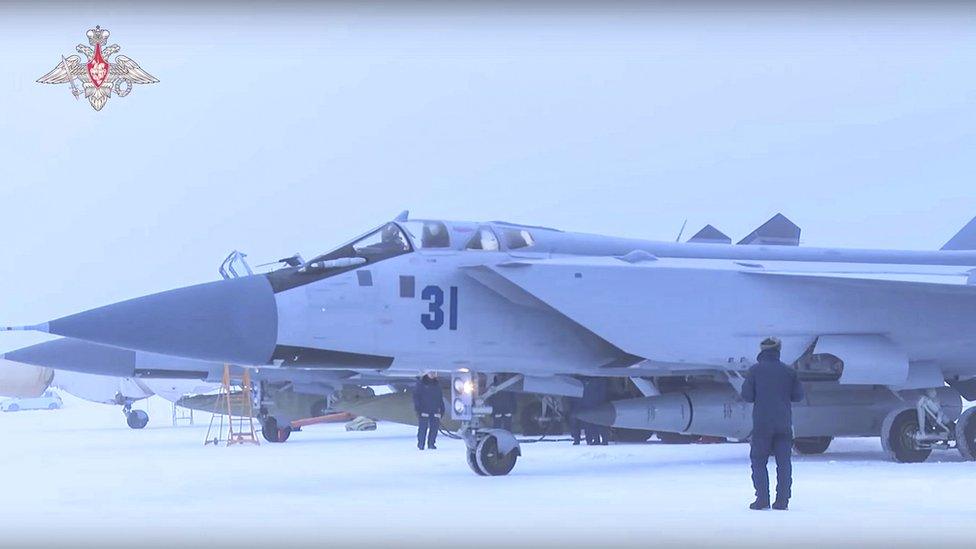Is North America's Arctic vulnerable to Russia?
- Published
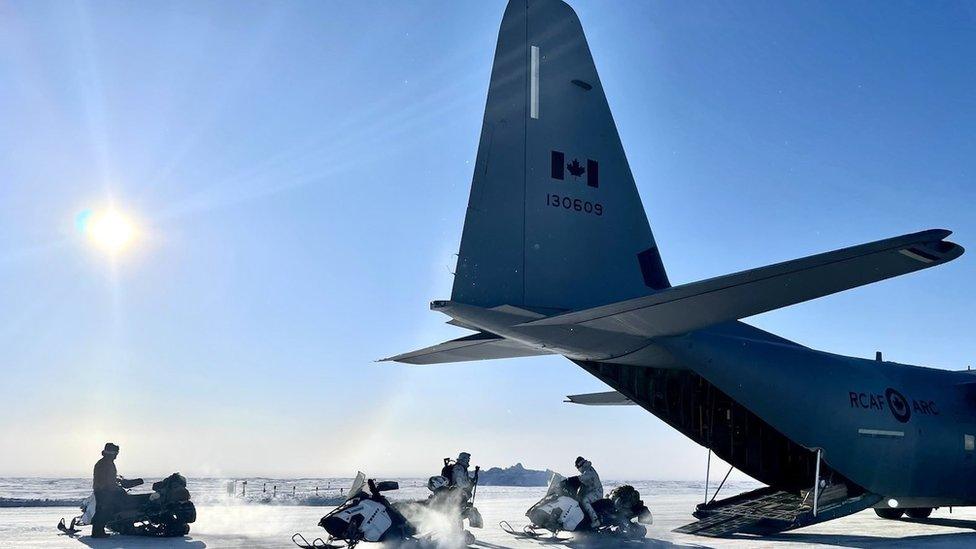
US Special Forces loading snowmobiles onto a Canadian aircraft during an exercise on 12 March (DoD Image)
Fears of body parts lost to frostbite, ferocious winds and freezing temperatures that make aircraft parts brittle and useless are just some of the challenges that retired Canadian colonel Pierre Leblanc has faced in the nearly 10 years he's spent in the Arctic.
The dangers - and everyday life - are compounded by the near complete and total isolation humans face in the far north of the globe.
"You can literally fly for hours without seeing anything. Just tundra, the open forest, and the taiga" - also called a boreal forest - he said. "I've operated in -78 degrees centigrade (-108F) with wind chill. If you don't know how to operate in that kind of weather, you're going to become a search-and-rescue problem. Or lose bits of your body to frostbite. Toes. Fingers. The tip of your nose."
Despite its seclusion and sparse population, this vast expanse of North America - larger in size than the whole of Europe - is now gripping the attention of governments and security experts. At a time when tensions are high in the wake of Russia's invasion of Ukraine, they warn that North America's Arctic may be vulnerable.
"Vladimir Putin has been acting increasingly irrationally," said Mr Leblanc, who for years oversaw troops and early warning systems in Canada's northern territories. "When an enemy starts to act irrationally, you need to make sure the defences of your own country are up to par. In the Canadian Arctic, that's a problem - we haven't done enough."
Mr Leblanc's warnings have been echoed by many of Canada's most senior defence officials. Chief of Defence Staff Wayne Eyre recently told attendees at a Canadian security conference that the far north is "a key area of concern", adding that it's not "inconceivable that our sovereignty may be challenged".
Similarly, Defence Minister Anita Anand has told Canadian media she plans to visit the Arctic and is working on a spending plan to modernise Canadian air defences.
And just this month, the combined US-Canadian North American Aerospace Defense Command held a yearly exercise in the Canadian Arctic, with the stated intention of testing their ability to "respond to both aircraft and cruise missiles threatening North America".
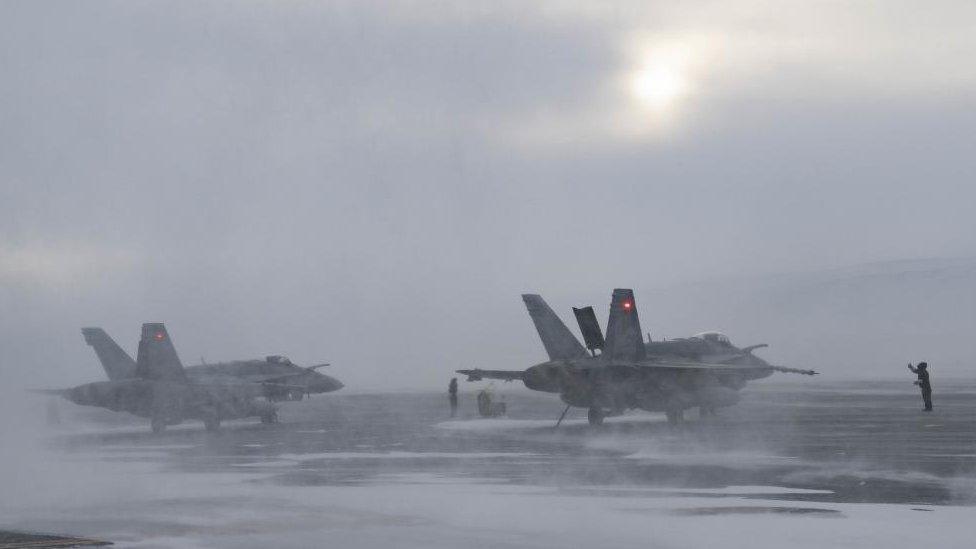
Canadian aircraft taking off from Greenland during an Arctic air defence exercise on 16 March (DoD image)
The Russian threat to the Arctic, experts say, could come in several forms, ranging from small-scale - and logistically extremely difficult - commando raids on Canadian facilities on its northernmost Ellesmere Island to nuclear-armed submarines prowling undetected under the Arctic ice.
In the event of a conflict, Russian missiles - including potentially nuclear ones - would also have to fly across the Arctic to strike targets in southern Canada or the United States. One such missile, the hypersonic Kinzhal - which can travel at more than five times the speed of sound - was just used in combat for the first time in Ukraine.
Katarzyna Zysk, an expert in Russia's military and Arctic security at the Norwegian Institute for Defence Studies, told the BBC that Russia may increasingly rely on these weapons to offset the challenges posed by an ageing navy, as well as heavy material and personnel losses among its Arctic-focused forces that have reportedly suffered heavily after being redeployed to Ukraine.
"They've been investing in these long precision weapons," she said, adding that "missile technologies is one area that Russia has an advantage. Nuclear technologies are another one."
Mr Leblanc warns that Canada's ability to defend against this threat is "limited", with its early warning system spread thin and relying on "very old" or sometimes obsolete technology that has been in place since the Cold War. The country's two main air bases in the Arctic - in Inuvik and Iqaluit - are over 1,730 miles (2,800km) apart.
"That's a huge challenge, in terms of observation of that space. The first thing you need to know is what's going on," he said. "I'm not sure [Canada's defences] would be all that useful against high-speed or hypersonic missiles, so we need to increase our posture. We need systems that provide what we call 'domain awareness' and allow us to understand what's going on in our backyard."
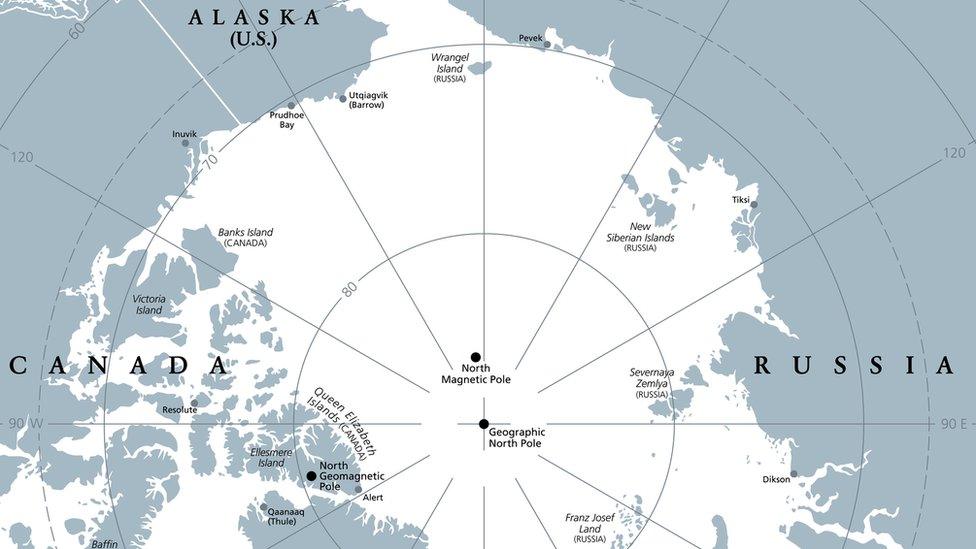
Not all Arctic watchers, however, are convinced that Russia poses an imminent threat to the North American Arctic.
Michael Byers, an expert in Arctic affairs at the University of British Columbia, said that while tensions in the European Arctic - where Russia faces Scandinavia - are running high, Russia is unlikely to consider any sort of incursion or escalation along the icy frontier with Canada.
"It's all quiet on this side of the Arctic and likely will remain that way," he said. "The primary military mission in the Canadian Arctic is search-and-rescue. It's so far from Russia, and there's so little incentive for Russian interference there."
Mr Byers argues that much of the debate about Canadian Arctic security is driven by political concerns at home.
"Arctic sovereignty is a major political issue in Canada, and governments are criticised for neglecting it by opposition parties. When parties lose power, they start making a bigger deal about it, and when parties form governments, they tend to play it down. It's a bit of a cycle."
"But the vast majority of Canadians have never been to the Arctic and don't appreciate how large and hostile it is, and how difficult, expensive and dangerous it would be to a major military operation," he said. "And again, Russia is a long way away."
A more urgent consequence of increased tensions in the Arctic because of the war in Ukraine may be that cooperation between Russia and other Arctic countries - including Canada - has largely been severed, bringing uncertainty to future collaboration aimed at monitoring potentially harmful developments, such as oil spills, and combating climate change.
On 3 March, for example, seven members of the Arctic Council, a forum for Arctic nations that addresses issues in the region, announced they were boycotting talks with Russia, which currently holds the chairmanship.
"That's probably the biggest impact we've seen," said Troy Bouffard, the director of the Alaska-based Center for Arctic Security and Resilience and a former Arctic Council delegate.
According to Mr Bouffard, the Arctic Council gave Russia an outlet through which it could showcase its concerns and interests in the region, and work together on issues ranging from indigenous communities to security and environmental worries.
"But now we've witnessed Russia throw away its chairmanship for its Ukrainian goals, and it's very disturbing," he added. "The efforts were very effective and very powerful. It's got us all basically scrambling to think about what's going to happen in the future."
- Published20 May 2021
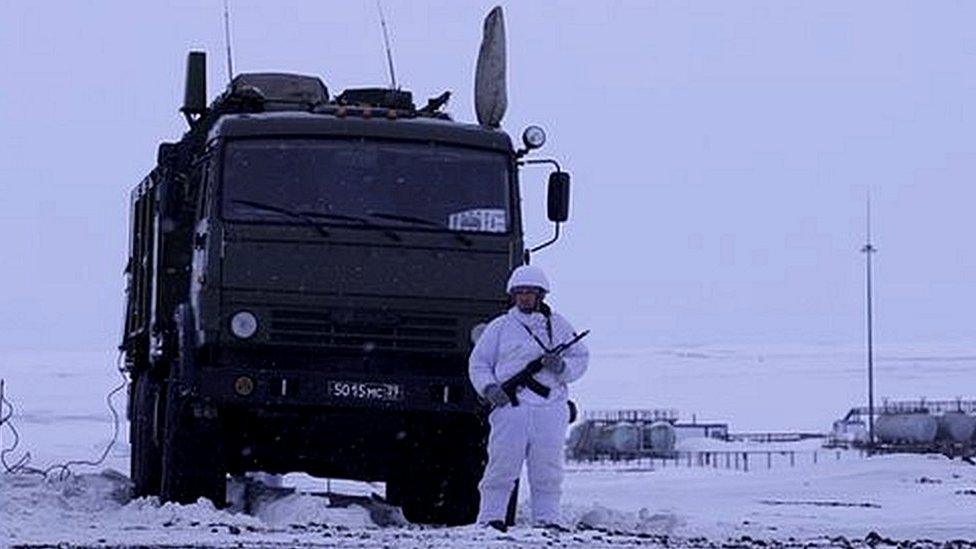
- Published30 March 2021
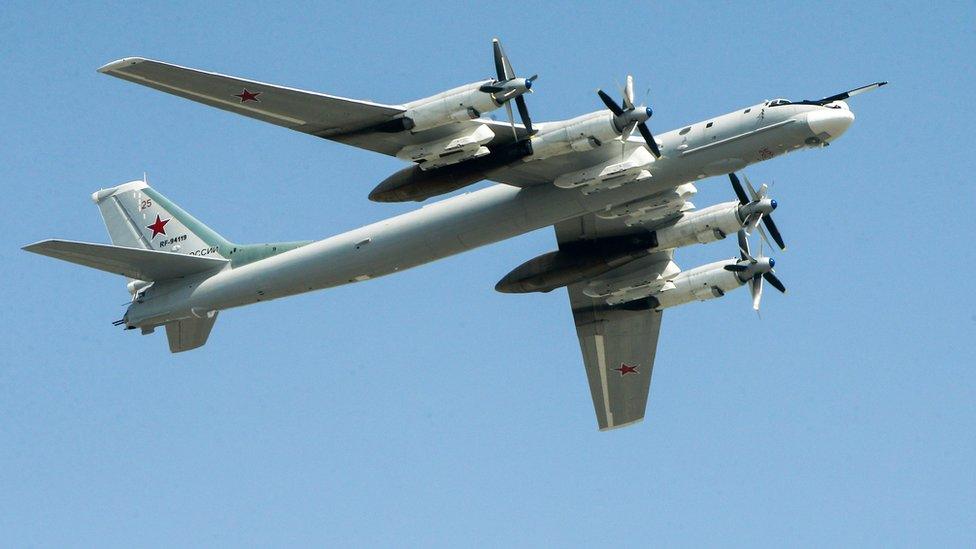
- Published11 January 2022
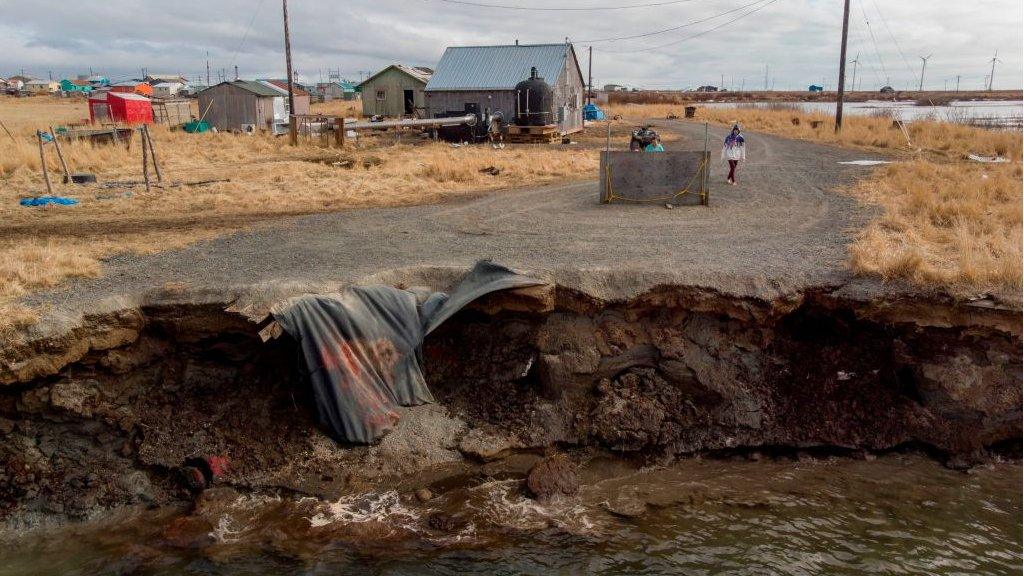
- Published19 March 2022
